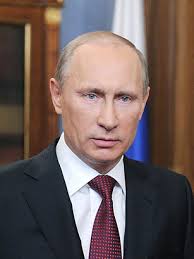Russian government strongly critisized as it fails to recover from economic crisis
MOSCOW: After a year that saw growth slump and the ruble nosedive on the back of falling oil prices and Western sanctions over Ukraine, officials have predicted that Russia’s economy will contract by some five percent in 2015.Faced with a crippling recession, Russian authorities are coming in for growing criticism from economic insiders concerned over a lack of clear policies to deal with the crisis.
As government income shrinks, the overall rate of inflation also looks set to to hit around 17 percent by spring.
And — with the situation hitting the wallets of ordinary Russians — alarm bells are ringing that the authorities under strongman President Vladimir Putin are floundering in their efforts to find a way out.
“I have read all of the government documents and I did not understand the aim of their economic policies,” said Herman Gref, head of Russia’s largest lender, Sberbank.
Taking to the podium at the same event, Prime Minister Dmitry Medvedev promised increased assistance to pensioners and large families and insisted that Moscow had no intention of turning its back on globalisation or plans to transform the economy into a “Western model”.
Like Putin before him, however, he failed to announce a single concrete measure or reform, leaving his ministers to debate how best Moscow should be using its roughly $385 billion of reserves or whether the country needs to be tightening its belt.
Over the past month the Russian government has scrambled to put out the growing number of economic firestorms. It has stepped in to bail out struggling banks, supported faltering airlines and unblocked funds for infrastructure projects.
On Friday Medvedev announced a series of “crisis meetings” aimed at tackling the problems battering different sectors of the economy.
The failures have now prompted Putin to recall veteran economist Dmitry Tulin to take over from US-trained Ksenia Yudayeva as the person in charge of the ruble’s fate.
Business portal RBK reported that the decision to bring in Tulin was made directly by the Kremlin and Putin’s economic advisor Andrei Belousov said there would be “changes” to monetary policy as the current ruble rate was making it “practically impossible to do business.”
But while economists seemed to welcome the appointment of Tulin — whose experience stretches bank to the Soviet era — there seemed little hope that the move would solve the economic problems.
“Just one person, however remarkable cannot change the way the institution works, and even more so as the problem is not just with the central bank” but also with the government, economics professor Petrov said.
Source:Economictimes
Kindly send reply or comments on this topic to [email protected].




